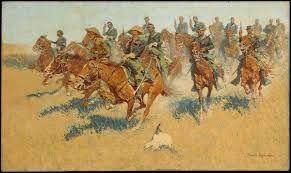A Superficial Happiness: Whether Moods?
The sun is finally out. Today started a little drizzly. It
stopped almost as quick as it started and the clouds made it feel muggy. I went
for a short walk this morning like I always do on Sunday. The air was thick
with moisture but the sun never came up and burned up the excess standing water.
The more I live in Oklahoma the more I like the summer heat. The hot weeks in
summer aren’t pleasant, but I prefer the heat to the early onset winter. Of
course I’m not a roofer and I don’t landscape, I’m sympathetic to those who can’t
wait for cooler days. But for me, lightweight clothing and flip flops are critical
to my inner happiness. Is that superficial?
Light Not Heat
I just finished
grilling some burgers and brats for the week. The older I get, the more I grill
for the week instead of just the current meal. Of course it means I’ll be
eating burgers till probably Saturday however. The air was still gloomy and moist, the
grill heat and the humidity made for an uncomfortable wait. Now that I’m seated and writing
the sun makes an appearance. I always feel mentally sound when the sun is out.
I don’t think I could live in a part of the world where the sky was overcast on
a regular basis. I took a vacation to Ireland with my brother and his roommate a
few years ago.
We spent a week traveling through the countryside and staying
in cities. It’s a lush, beautiful country with a chilly temperature (even in
August) that brings rain and clouds frequently. As lovely as it is, I’m a summer guy. I wouldn’t want
to live there. I genuinely enjoy the heat and the sunshine. As I’ve told many people
though, summer is about sunshine more than heat. The darkness is depressing. It’s
August now and the morning sun is already coming up later and later. I’m more
aware of it because I jog in my neighborhood twice per week. Of course I can
run in the dark, but I rather like to see the sun come up over the horizon.
There is a perfect spot near the fairgrounds where I can see it peak slightly
above the eastern tree line. If I time it just right, I’ll catch the first rays.
Sunny Side
When did this fascination with the sun begin? I can’t place
it exactly but it can’t be that unusual either. I don’t even like days in the
summer when it’s overcast and threatening rain. If it must rain then do it after
midnight, and if the thunderclaps wake me there’ll be hell to pay. Sorry for being
so finicky but it’s how I’m wired. Most personality traits can be traced back to
childhood, I assume spending time outdoors late into the evening has something
to do with it. Summers meant chasing lightning bugs in July, watching fireworks
after a full day of swimming at the lake. My brother and our cousin used to ride
our bikes between our houses before we had jobs. We all went through a
rollerblade phase too. My affinity for sunny days might relate to that break in
the middle of year when school is far from the imagination.
It makes sense for
most people to associate warm weather with sun and cold weather with gloomy
skies. After all warm weather means summer and cold means winter. Maybe it’s just
too much for some people to break that recognizable pattern in their minds.
Weather and Moods
After some quick google searching about the phenomena of mood shifts due to weather, I don’t believe I get depressed to any large degree. But the difference in my attitude from summer to winter is noticeable. But it’s more about the lack of sunlight then the temperature. I don’t sleep late or mope around the house unable to do regular chores, it’s more of a longing for warmth and light. It just feels worse on those long weeks of clouds and gloom.
Maybe
my future is in Phoenix or Winslow or Las Vegas. All of the sunniest cities in
the US are in the Southeast. Most of the cloudiest ones are in the Northwest,
Anchorage, Seattle and Tacoma. There are quite a few in the Ohio River Valley
region too, Pittsburg and Cleveland. Buffalo gets a dishonorable mention for
the Northeast region. The rest of the country falls in the middle. Oklahoma probably
gets more sun than clouds but the article didn’t say.
Conclusion
Is all this weather and sunshine business a real issue? Are
moods really affected that much by the weather? Some research suggests it’s
not. But those studies are based on genuine, clinical depression and not the
kind of low level sadness I’m referring to. I’m not someone who’s outdoors all
that much, but even sitting here typing on my computer is more enjoyable on a
sunny day. If that’s superficial then so be it.
Thankfully the sun is up now…and I’m happy again.






